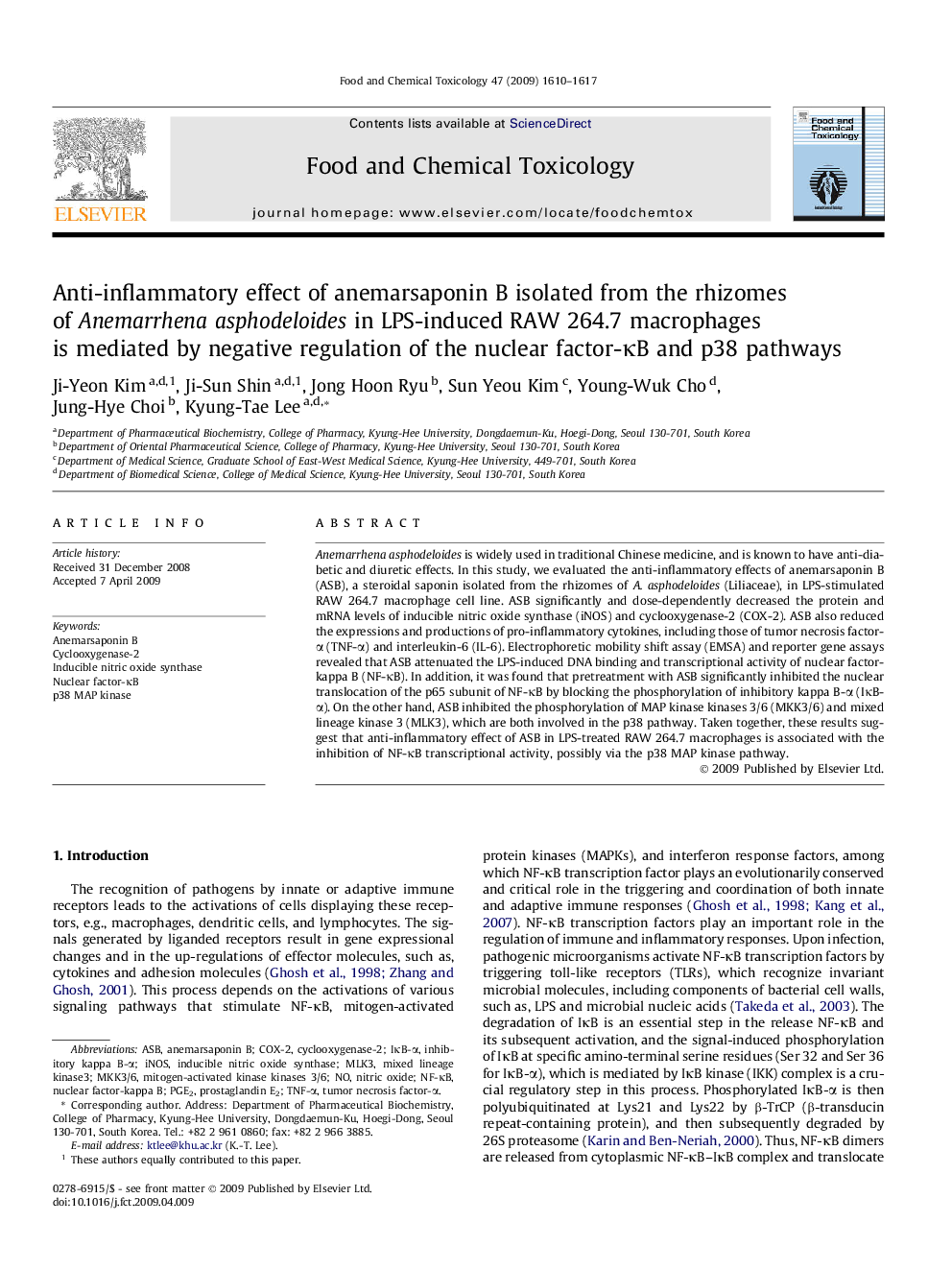| Article ID | Journal | Published Year | Pages | File Type |
|---|---|---|---|---|
| 2586273 | Food and Chemical Toxicology | 2009 | 8 Pages |
Anemarrhena asphodeloides is widely used in traditional Chinese medicine, and is known to have anti-diabetic and diuretic effects. In this study, we evaluated the anti-inflammatory effects of anemarsaponin B (ASB), a steroidal saponin isolated from the rhizomes of A. asphodeloides (Liliaceae), in LPS-stimulated RAW 264.7 macrophage cell line. ASB significantly and dose-dependently decreased the protein and mRNA levels of inducible nitric oxide synthase (iNOS) and cyclooxygenase-2 (COX-2). ASB also reduced the expressions and productions of pro-inflammatory cytokines, including those of tumor necrosis factor-α (TNF-α) and interleukin-6 (IL-6). Electrophoretic mobility shift assay (EMSA) and reporter gene assays revealed that ASB attenuated the LPS-induced DNA binding and transcriptional activity of nuclear factor-kappa B (NF-κB). In addition, it was found that pretreatment with ASB significantly inhibited the nuclear translocation of the p65 subunit of NF-κB by blocking the phosphorylation of inhibitory kappa B-α (IκB-α). On the other hand, ASB inhibited the phosphorylation of MAP kinase kinases 3/6 (MKK3/6) and mixed lineage kinase 3 (MLK3), which are both involved in the p38 pathway. Taken together, these results suggest that anti-inflammatory effect of ASB in LPS-treated RAW 264.7 macrophages is associated with the inhibition of NF-κB transcriptional activity, possibly via the p38 MAP kinase pathway.
